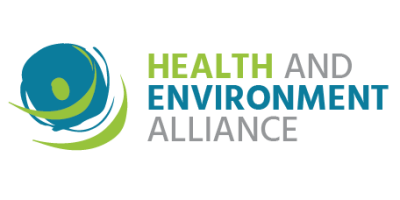

- Home
- Companies
- Health and Environment Alliance (HEAL)
- News
- Pesticides linked to childhood brain ...
Pesticides linked to childhood brain cancers
In a new study released by the National Institute of Health Sciences, herbicide use appeared to cause an elevated risk for cancer. The study found that children living in homes where their parents use pesticides are twice as likely to develop brain cancer versus those that live in residences in which no pesticides are used.
It has long been known that pesticides cause cancer in animals, but this research adds to a growing body of evidence pointing to pesticide exposure and increasing cancer rates in humans. Brain cancer is now the second most common cancer in children, yet the reasons as to why it develops remain unclear. In a small number of cases genetics play a role, but increasingly scientists believe environmental factors are dominant players in causation.
The authors of this particular study, ‘Parental exposure to pesticides and childhood brain cancer’ state that parental pesticide exposures before a child’s conception, during gestation, or after birth may increase the risk of cancer. Exposures during these different intervals may trigger genetic changes that lead to cancers.
The study researched over 1300 fathers and mothers that lived in residential areas in four Atlantic Coast states. Those exposed to pesticides where matched to an `unexposed` person of the same age and status. The study included more than 640 fathers mothers of exposed children. Researchers assessed parental exposure to pesticides at home and at work beginning two years prior to their child’s birth. Brain cancer cases in children under 10 years old, diagnosed between 1993 and 1997, were included in the study - the children had participated in the original Atlantic Coast childhood brain cancer study.
Within the EU, this study joins a new wave of concern over pesticide exposures. Despite increasing evidence to suggest that exposure can be extremely harmful to human health, policy makers have been slow to react. In January 2009, new European rules sought to remove the risks associated with pesticide exposure for the environment and especially in relation to human health. Public awareness raising about these new rules is hugely important.
At the end of 2008, HEAL and the Mouvement pour les Droits et le Respect des Générations Futures launched the ‘Sick of Pesticides’ campaign as part of a Europe-wide initiative to raise awareness of the links between pesticides and cancer. The campaign calls on governments to set up ambitious National Action Plans for Pesticide Reduction and helps people and public bodies to reduce their dependence on pesticides. Through this campaign, currently running in France and launching soon in the UK, we aim to mobilize affected groups and the wider public to push for change.
With more and more studies being released that highlight the risks of pesticide exposures to adults and children alike, and with an increasingly well informed public, we can only hope that decision makers start acting on these concerns and make changes for today and not tomorrow.
